Can You Overdose on Cannabis?
Cannabis is a plant-based drug that is typically smoked, inhaled, or eaten.
Cannabis itself is usually green and forms dry lumps – it is made when different parts of cannabis plants are dried for use.
Cannabis is psychoactive, meaning that it primarily affects the mind.
How Common Is Cannabis Use?
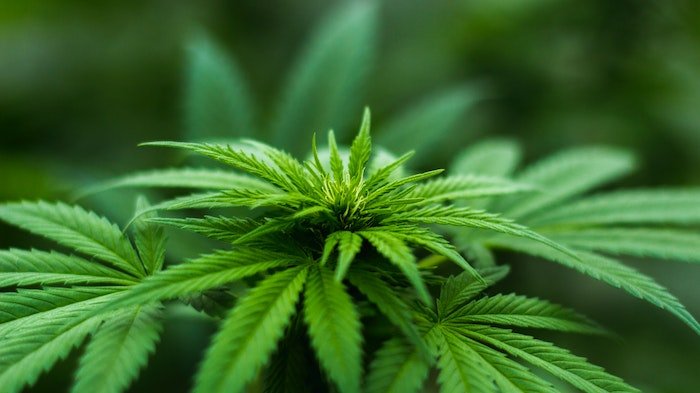
Cannabis is one of the most commonly used drugs in the world, with the World Health Organisation estimating that around 2.5% of the global population have used cannabis.
This is around 147 million people.
A 2019 report found that cannabis is the most popular drug used in the UK.
The report also found that in England, Scotland and Wales, cannabis was the second most used drug among all individuals who accessed drug-related treatment.
This means that a high number of people access support for cannabis dependency in the UK.
Despite this, there are some calls for the legalisation of cannabis in the UK – cannabis is already available on the legal market in some countries and some states in America.
This is largely due to two reasons:
- The belief that making cannabis legal will mean that it will be regulated and therefore safer to use.
- The belief that using cannabis could potentially have some health benefits for some individuals (such as those with extreme anxiety or chronic pain)
The debate around cannabis is very complex.
However, regardless of where you stand, it is important to know about the side effects of cannabis and ensure that you know what to expect in order to keep as safe as possible.
Think you might be suffering from cannabis abuse? Talk to our experts today on 0800 088 66 86
What Are the Side Effects of Cannabis?

Like all drugs, cannabis can cause a wide variety of side effects.
These can affect both the body and the brain.
It is important to know that the effects of drugs are not always consistent.
As illegal drugs are unregulated, it is impossible to know all of the ingredients a particular batch might contain.
This means that each time you use a drug, there is a chance that it contains things that you are not aware of.
Essentially, the strength of cannabis – and the other ingredients it may have been ‘cut’ (or mixed with) will probably vary with each use.
This means that the way your body and brain react to cannabis – how you feel both during the high and afterwards – might change.
There are, however, a list of common side effects that you can look out for.
Physical Side Effects
- A decrease in mobility and coordination skills
- Dry mouth
- Red or sore eyes
- Sickness and vomiting (in extreme cases, cannabinoid hyperemesis syndrome, which can be life-threatening)
- Changes in appetite
- Increased or rapid heart rate
- Increased blood pressure
- Temporary pain relief
Psychological Side Effects
- Feeling relaxed or calm
- Difficulty remembering things
- Difficulty paying attention
- Difficulty thinking clearly or making informed judgements
- Perceiving things differently (some people experience that noises seem louder, or colours are clearer and brighter)
- Delusions or irrational beliefs (believing things that are untrue, or not grounded in reality)
- Hallucinations (seeing, hearing, feeling, tasting or smelling things that are not there)
- Psychosis (a mix of hallucinations or delusions, some people describe this as a ‘loss of contact with reality.’)
Cannabis Use Disorder

Another potential side effect of using cannabis frequently is developing a cannabis use disorder or cannabis dependency.
Cannabis use disorder is a type of addiction that happens when people really struggle to stop using cannabis even if it is causing issues in their lives.
Whilst it is not possible to identify who will develop cannabis disorder specifically, some research has suggested that as many as 3 in 10 people who use cannabis will have cannabis use disorder.
Signs of Cannabis Use Disorder:
- Intense cannabis cravings
- Increasing the amount of cannabis you use
- Increasing how frequently you use cannabis
- Trying to stop using cannabis and failing to
- Issues in relationships with friends, family and loved ones
- Issues with physical and mental health
- Feeling withdrawal symptoms when you do not use cannabis
- Using cannabis in unsafe ways (while at work, driving, or providing childcare)
Get the help you need to overcome cannabis addiction by calling us on 0800 088 66 86
How Much Cannabis is a Safe Amount to Take?
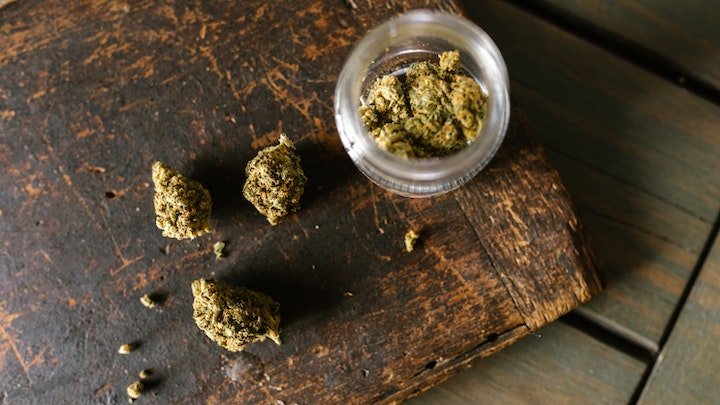
It is not possible to delineate what is a safe or unsafe amount of cannabis to take.
This is due to two main reasons:
- Because every batch of cannabis can be different
- Because every person will be affected by drugs differently
Some of the different factors that impact how drugs will impact an individual include:
- Your size (height, body mass, etc)
- If you have used cannabis before
- If you are using other drugs at the same time
- If you are on medications that may interact with cannabis
- Your general physical health
- Your general mental health
- How frequently you use cannabis (a heavy user may experience less short-term effects than a new user, but may be at risk of more long-term complications)
- The quantity of cannabis you have used
Can a Cannabis Overdose Be Fatal?
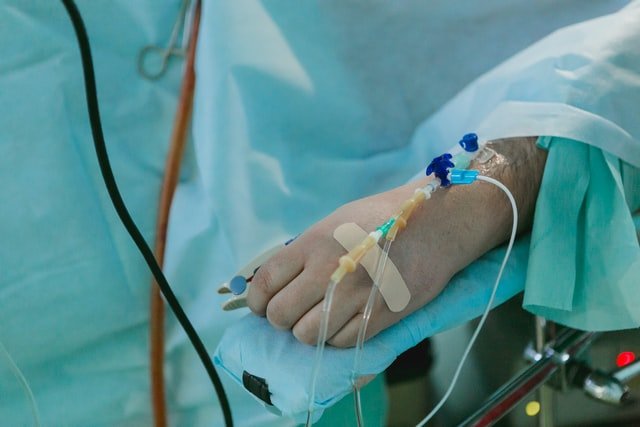
While it is possible to take too much cannabis, it is very unlikely for a cannabis overdose to lead to death.
Studies have found that excessive use of cannabis is more likely to result in ‘overdose injuries’ rather than fatality.
This means that heavy use of cannabis is associated more with injury than death.
For example, the research found that cannabis use can be related to a higher risk of traffic accidents.
While there are no known records of individuals who have died from overdosing on cannabis alone, there are some cases where an overdose of cannabis and other drugs has led to death.
Find your way towards sobriety at a drug and alcohol rehab by calling us on 0800 088 66 86
Cannabis Overdose Symptoms
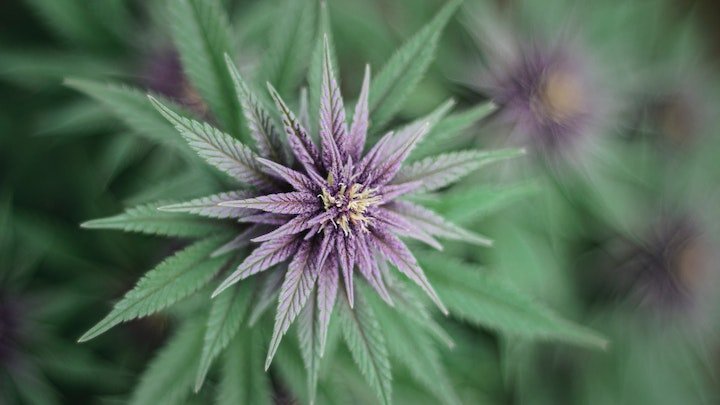
Although a fatal overdose of cannabis is very unlikely – with some medical professionals believing it is impossible – it is possible to experience a range of negative physical and psychological symptoms if you take too much cannabis.
This is because cannabis is a toxic substance, so it is possible to experience these symptoms through cannabis poisoning.
Some of the symptoms you could experience include:
- Anxiety attacks or panic attacks
- Feeling confused
- Feeling paranoid and on edge
- Hallucinations
- Dizziness or feeling unsteady
- Increase in heart rate
- Struggling to speak or hold a conversation
- Hyperemesis syndrome (consistent sickness that can lead to dehydration and serious health complications)
- Pain in the stomach
- Severe drop or rise in blood pressure
Managing the Risks of Cannabis Overdose

Studies into cannabis have suggested there are several factors that can affect the level of ‘toxicity’ (how harmful cannabis is to the body).
The main factors that increase the risk of cannabis toxicity and therefore potential overdose include:
- The level of THC in the drug
- The route of administration
- The past drug-related experiences of the user
THC and Cannabis Overdose
THC is short for tetrahydrocannabinol.
THC is a psychoactive ingredient in cannabis. This means it is one of the chemicals found in cannabis that causes the high.
Research into cannabis has shown that the more THC there is in the dose taken, the more serious the effects of the high.
A study found that doses of:
- 2 or 3 milligrams of THC can have short-term effects on our attention and memory.
- 7.5mg and above can cause severe symptoms of anxiety, panic attacks and problems with breathing.
This suggests that the stronger the batch of cannabis, the more serious the effects and risk of overdose are.
Find your way towards sobriety by calling our expert team on 0800 088 66 86
Does the Way You Take Cannabis Change the Risk?

Typically, cannabis is taken in two different ways. It is either:
- Inhaled (smoked) or
- Ingested (eaten)
Inhaling cannabis makes its effects more immediate, as well as bringing the various effects of other combustible materials it has been mixed with, typically tobacco.
Ingesting cannabis produces a slow-releasing impact that tends to last longer overall, however, the significant amount of time taken between ingestion and feeling its effects tend to mean that it is far easier to take too much.
Which is More Dangerous?
Smoking cannabis increases the potency of the high and can have a 2 to 3 times stronger effect on the smoker than edibles. [15]
This is thought to be because the drug enters the bloodstream faster when it is inhaled.
However, there are some risks associated with smoking cannabis in particular.
These can include issues with the lungs, respiratory depression, and increased blood pressure and heart rate.
How Long Does Cannabis Stay in Your System?

Below, we look at how long cannabis stays in your system, depending on whether you smoke or ingest cannabis:
1. Smoking Cannabis
When you smoke cannabis, you can feel the effects in just a few seconds after inhaling.
These effects tend to ‘peak’ (or become their strongest) after 30 minutes.
You might be able to feel the effects of cannabis for up to 6 hours after smoking it.
2. Eating and Drinking Cannabis
When you eat or drink cannabis, you can feel the effects anywhere between half an hour and 2 hours after ingesting it.
These effects tend to ‘peak’ (or become their strongest) after 4 hours.
You might be able to feel the effects of cannabis for up to 12 hours after eating it.
Get the help you need to beat cannabis addiction by giving our expert team a call on 0800 088 66 86
Can You Overdose on Cannabis Edibles?
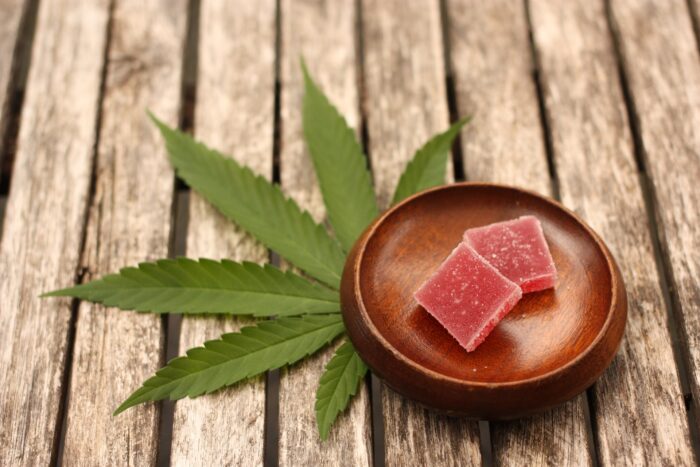
The biggest risk associated with edibles is that people may accidentally consume more than they wish to.
This may be because it is harder to identify how much cannabis is actually inside food and drink.
It may also be because, as the feelings of the high take longer to develop than when smoking, people may then eat or drink more because they can’t yet feel the high.
The risk of this is that you may take more than you anticipated and subsequently feel more intense symptoms.
There are also some other risks associated with eating edibles, as they can affect the digestive system.
Can You Overdose on CBD Oil?
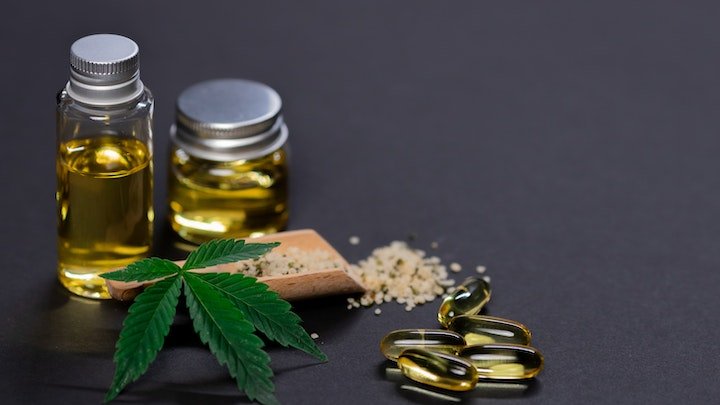
Over time, CBD oil has become more popular.
CBD, like THC, is a chemical found in cannabis.
CBD stands for cannabidiol.
Unlike THC, cannabidiol does not get you high.
This is why in some countries, products infused with CBD oil are becoming increasingly popular on the legal market.
CBD is thought to have some benefits for both physical and mental health, including helping with chronic pain, managing anxiety symptoms, seizures, and cancer treatment.
However, scientists and medical professionals are still looking into the extent to which CBD can be used to help treat different conditions.
Due to this, there are still legal regulations that CBD products need to follow in order to be sold legally.
To learn more about the risks of cannabis addiction, give our team a call on 0800 088 66 86
What You Should Do During an Overdose
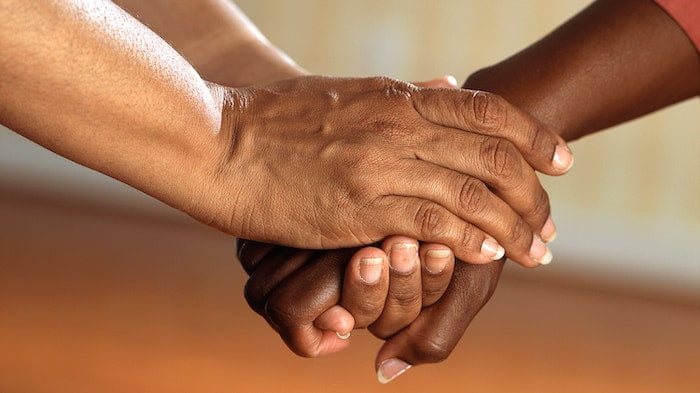
If you believe you or a loved one are experiencing an overdose, it is important to get medical help.
Although it is very unlikely for a cannabis overdose to lead to death, it is important to have your symptoms monitored if you believe you are experiencing an overdose.
Here are some steps you can take to help someone who may have taken an overdose in an emergency situation:
- Try your best to stay calm
- Try to find out what they have taken, and how much of it, and save any available packets or debris to show to a medical professional
- Call 999
- If the person is breathing, but is not conscious (not responding) put them into the recovery position
- Stay with them to monitor any changes
- Do not give them anything to eat or drink
- Do not try to help them to be sick
If you believe you or a loved one have taken an overdose but are not showing signs of being in immediate physical or psychological danger, you can contact NHS 111 to get advice on how to proceed.
What May Happen Afterwards

If you or a loved one have taken an overdose and are admitted to the hospital, there are a range of procedures that medical professionals will go through to ensure that both your mind and body are safe.
These may include:
- A verbal assessment (asking you or a loved one what has happened, establishing what symptoms you may be experiencing)
- Medical assessments (taking blood samples for testing, checking your oxygen levels and temperature, etc.)
- Administering antidotes where appropriate (to help neutralise the drug and decrease the impact it will have on your body)
- Arrange a psychological evaluation with an appropriate mental health professional to check your psychological state and safety
Make sure that you overcome addiction in a safe, effective way by giving our team a call on 0800 088 66 86
Am I Addicted to Cannabis?

With increased use comes an increased risk of addiction.
This means that if you are a heavy user of cannabis, you are at a greater risk of harm.
If you are using cannabis regularly and feel that you may be relying upon it to get through your day-to-day, there is a chance that you are experiencing cannabis dependency.
Some of the signs of addiction you can look for include:
- Experiencing unexplained or new issues with your physical health.
- Experiencing unexplained or new issues with your psychological health.
- Struggling to maintain your personal care (not eating well, or maintaining hygiene).
- Struggling in your workplace (not attending work or being frequently late, conflict with management and not meeting deadlines).
- Struggling in your education setting (not attending school or university, being frequently late, conflict with authority figures and not meeting deadlines)
- Struggling to maintain your relationships (feeling isolated or lonely, not seeing friends and family or feeling an increased tension when with your loved ones).
- Struggling to maintain your home (difficulty keeping up with household tasks such as cooking, cleaning, or buying groceries).
- Struggling to keep track of your finances (regularly borrowing money from friends and family, setting up loans or credit cards, missing bill payments on a frequent basis).
Treatment for Cannabis Addiction

Addiction is a disorder.
That means that if you are struggling with addiction, you deserve to access the appropriate care and support, just like anyone else.
There are many different approaches to cannabis addiction rehab and treatment available for you to access today.
By speaking to a specialist treatment provider, you can discuss which types of support may be best for you and begin to design a tailor-made support plan.
Some forms of addiction treatment for example can include:
- Acceptance and Commitment Therapy
- Brief Interventions
- Co-dependency Treatment
- Cognitive Behavioural Therapy (CBT)
- Dialectical Behavioural Therapy (DBT)
- Family Therapy
- Group Therapy
- Holistic Therapy/ Alternative Therapy (Art Therapy, Music Therapy, Equine Therapy, etc).
- Individual Therapy (1-1 Therapy)
- Motivational Enhancement
- Motivational Interviewing
- Psychotherapy
- Twelve-Step Facilitation Treatment (TSF)
- Contingency management
- Self-help groups
Experience first-class treatment for cannabis addiction no matter where in the UK you are – talk to us today on 0800 088 66 86
Find Help Now

Addiction can be very isolating and sometimes we can convince ourselves that we have nowhere to turn to.
However, there are many different ways to access support and begin to regain control over our lives by taking positive steps towards starting our journey to recovery.
By finding a support network that works for you, you can get the help that you deserve and begin guided professional treatment with addiction specialist providers.
If you are ready to access support for your use of cannabis, you can contact Rehab Recovery at 0800 088 66 86 or use the online form to request a call back from a member of our specialist team about accessing support at a local rehab centre.
If you are uncomfortable with speaking over the phone, you can use our free chat service at any time of the day to speak with a professional virtually.
By speaking with a team of specialist addiction professionals, you can make the first move away from addiction and begin to look after yourself with the level of care and respect that you deserve.




